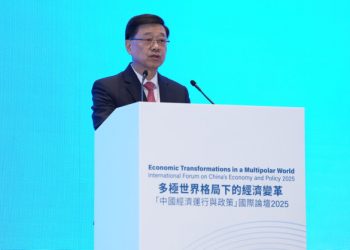Environmental issues were conspicuously absent from the 2024 U.S. presidential campaign, but moves by President-elect Donald Trump’s first administration and his leadership picks for his next administration offer clues to what may be ahead.
They point to a second Trump administration likely loosening regulations on industries, particularly oil, gas and petrochemicals, giving them wider permission to pollute.
Some actions will be overt. But history suggests this administration may also try to use the language of science – terms such as transparency, citizen science and uncertainty – to weaken environmental and health protections and write regulations more favorable to industry.
Those ideas surfaced during the first Trump administration and in conservative agendas such as Project 2025. Project 2025 was written by former Trump administration officials, including several people Trump has tapped for his next administration. Trump distanced himself from the project during the campaign but now says he agrees with many parts of it.
I followed the first Trump administration closely as a researcher involved in the Environmental Data & Governance Initiative, or EDGI. The group was founded in 2016 to document Trump’s efforts to dismantle the Environmental Protection Agency. During Trump’s first administration, we archived climate and environment datasets used by scientists, advocates and policymakers who were worried these might be hidden by the administration. We also tracked how the Trump administration changed climate language on agency websites.
EDGI also interviewed agency staffers facing political pressure and explained the potential impact of policy shifts and rule changes.
Here are three ways the second Trump administration could try to use the language of science to write policies that sound beneficial but could have profound effects on environmental health.
1. ‘Strengthening transparency’ to block use of health data
When you hear words such as “transparency” or “open source,” they probably sound positive – the idea is that all of the parts can be seen and checked.
But would you want your health records open for anyone to see? The privacy of health care records was at the heart of a debate over a policy the first Trump administration created called “Strengthening Transparency in Pivotal Science Underlying Significant Regulation Actions,” or the “secret science” rule.
The rule could have prevented the government from considering important health research in setting pollution limits.
Decades of health data gathered from people across the United States have shown how air pollution from power plants and other sources can contribute to cancer and other illnesses. That data has provided the evidence for regulations that have cleaned up the nation’s air and water for a healthier environment.
But the raw data from those studies can’t be made public because it involves people’s personal health records. The rule the EPA finalized during the last weeks of the first Trump administration required the agency to give less consideration to studies if the underlying data wasn’t publicly available. A court vacated the rule on Feb. 1, 2021.
I expect Trump’s EPA will try again to require that the agency’s rules have a basis in published raw data. The Project 2025 agenda calls for “true transparency” to be a defining characteristic of the EPA, including “the establishment of open source science.” That would limit the use of private health data or data whose use is licensed by companies. This would make it harder to develop rules protecting public health.
2. Boosting public scrutiny of the EPA
The author of Project 2025’s chapter on the EPA was Mandy Gunasekara, who served as chief of staff to Trump’s EPA administrator in the first administration. Apart from transparency, Gunasekara has also pitched “citizen science” as a way to “deputize the public to subject the agency’s science to greater scrutiny.”
At its best, citizen science is an important way for the public to ensure research reflects their interests and experiences. At its worst, citizen science is used to delay meaningful actions.
Who benefits from “deputizing the public” to scrutinize EPA science depends on who has access to information and the resources to engage. Wealthy industries and private interests may gain a greater voice, while the communities most affected by pollution remain sidelined, particularly if government makes the EPA’s science difficult to find.
Project 2025 also calls for resetting the composition of the EPA’s advisory boards – and even suspending some of them. These boards consider feedback from industry, academia and communities. Similar actions during Trump’s first administration reduced the number of academics and representatives of nongovernmental organizations on these boards, while increasing the number of industry consultants.
3. Using uncertainty to avoid regulation
Uncertainty is another important scientific term that the first Trump administration used to promote deregulation, particularly for chemicals.
When the EPA studies chemicals, there are uncertainties around the health effects at different levels and types of exposure. A precautionary approach assumes that chemicals have adverse effects at low doses and that those effects grow as exposures increase or accumulate. Many scientists consider precaution a safer bet when not enough is known about the chemicals’ effects.
Yet some chemicals may not actually cause harm until they reach a certain threshold. In the view of the chemical industry, that means a “better safe than sorry” approach can be wrong. Instead, the industry says, chemical regulation should be based on the best available science. However, the best available science on chemicals is often inconclusive. In the absence of a precautionary approach, the industry’s argument for the “best available science” could actually mean less justification for regulation.
Project 2025 proposes that, on his first day in office, Trump should issue an order to “reject precautionary default models and uncertainty factors” that “drive flawed and opaque decisions.”
The consequences could include EPA analyses that understate the risks of toxic chemicals when research is still emerging, such as with PFAS.
What’s next?
Our team at EDGI is working with partners to again identify federal web pages and datasets vulnerable to removal, modification or attrition. That allows us to sound the alarm if these resources for tracking and addressing climate and environmental change go missing. We believe watchdog strategies made political appointees hesitant to order more changes during the first Trump administration.
I don’t think Trump’s next EPA will be straightforwardly “anti-science.” I believe, however, that it will use language that appears to boost research openness and citizen participation but that is aimed at undermining policies that protect human health and the environment.
![]()
Eric Nost is a member of the Environmental Data & Governance Initiative, which received funding from The David and Lucile Packard Foundation to support some of the research summarized in this article.















